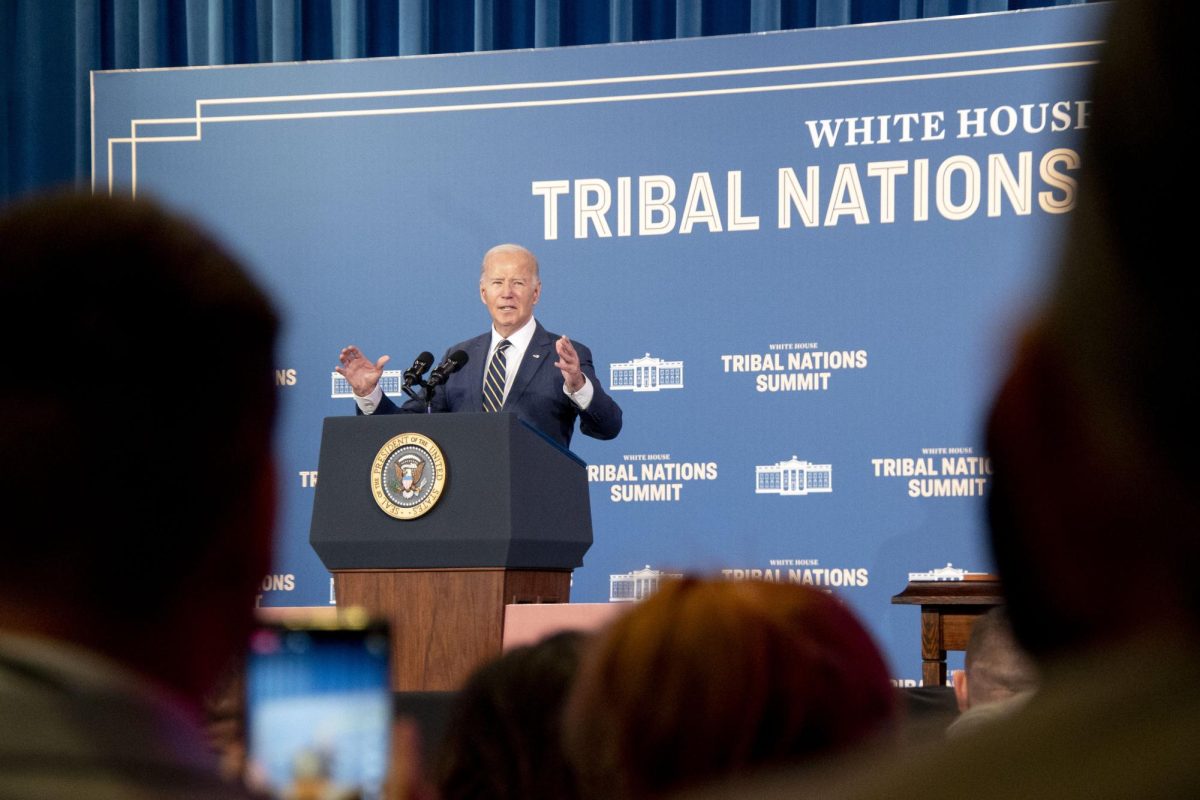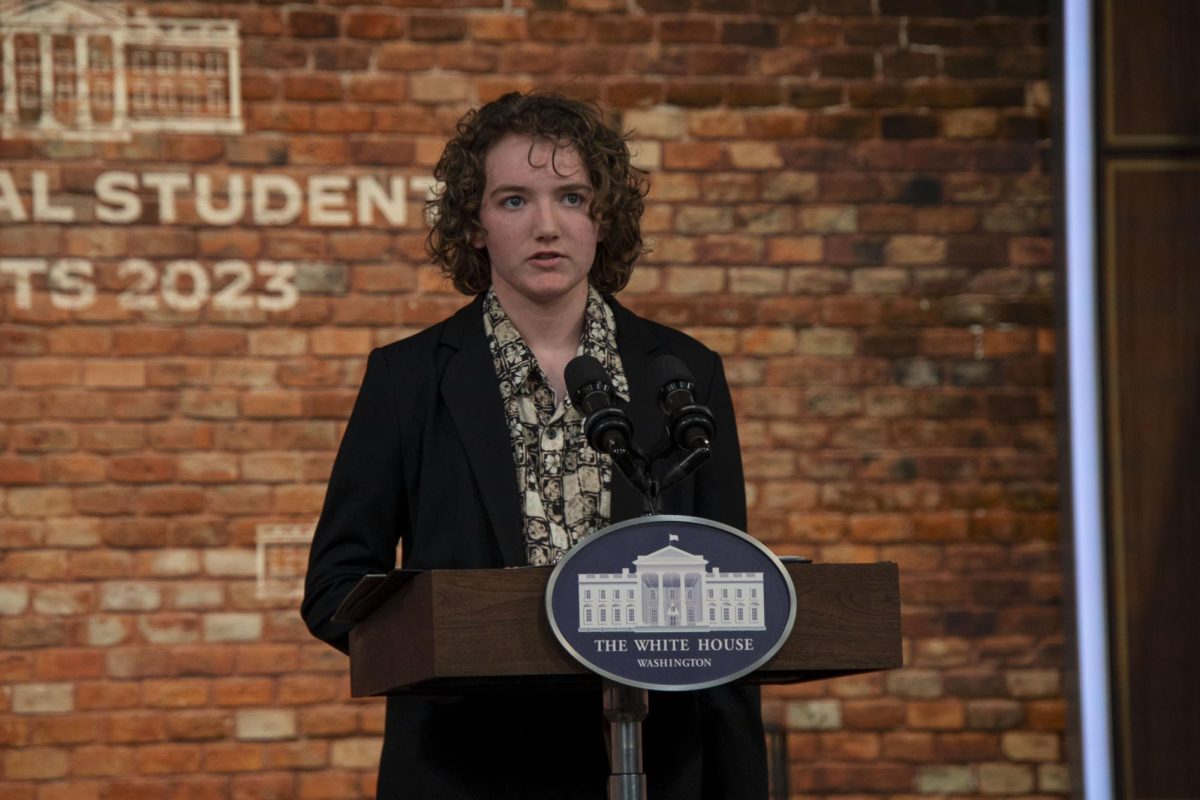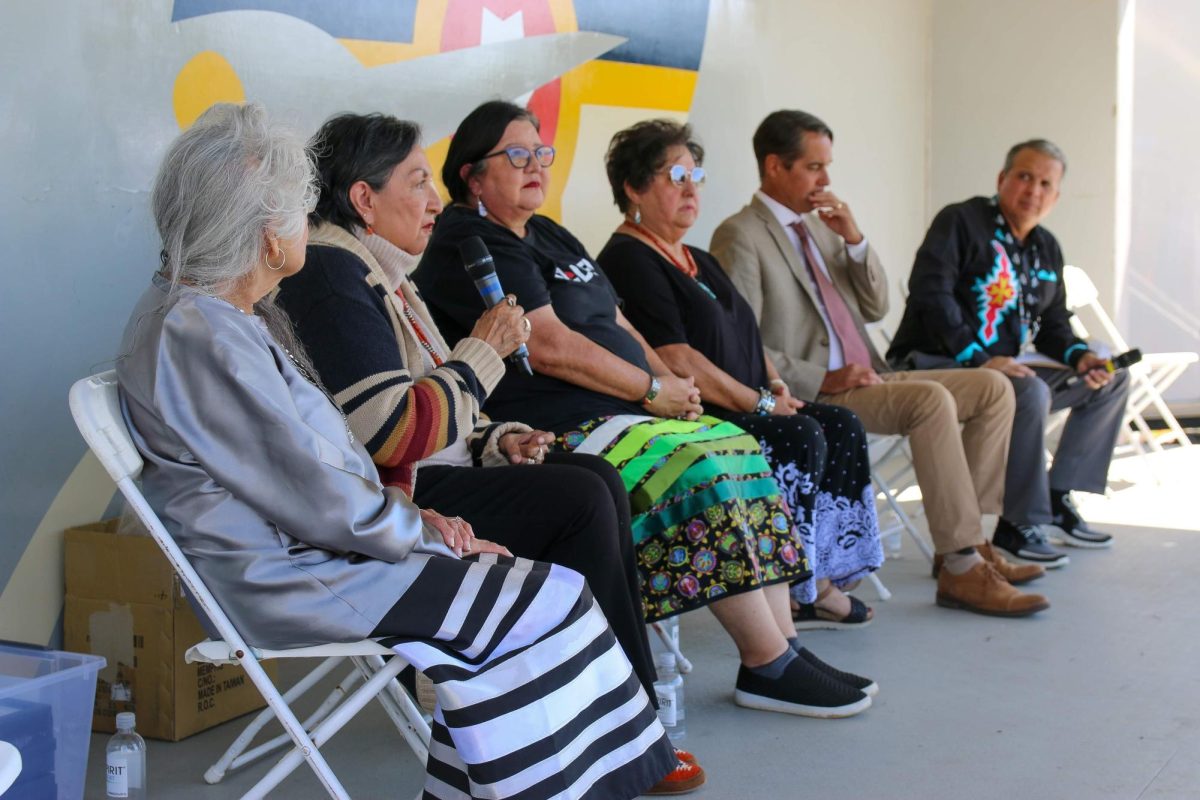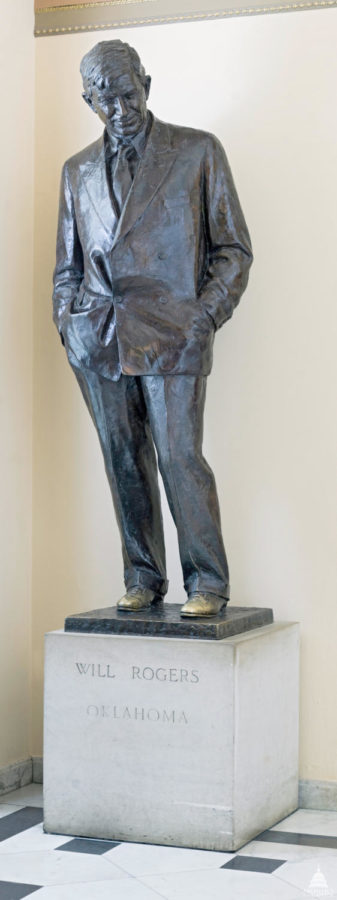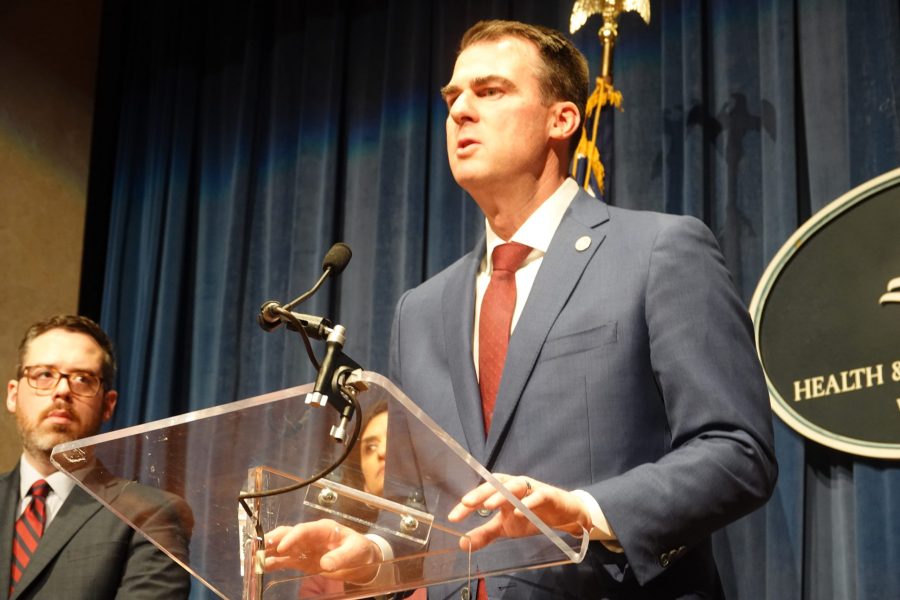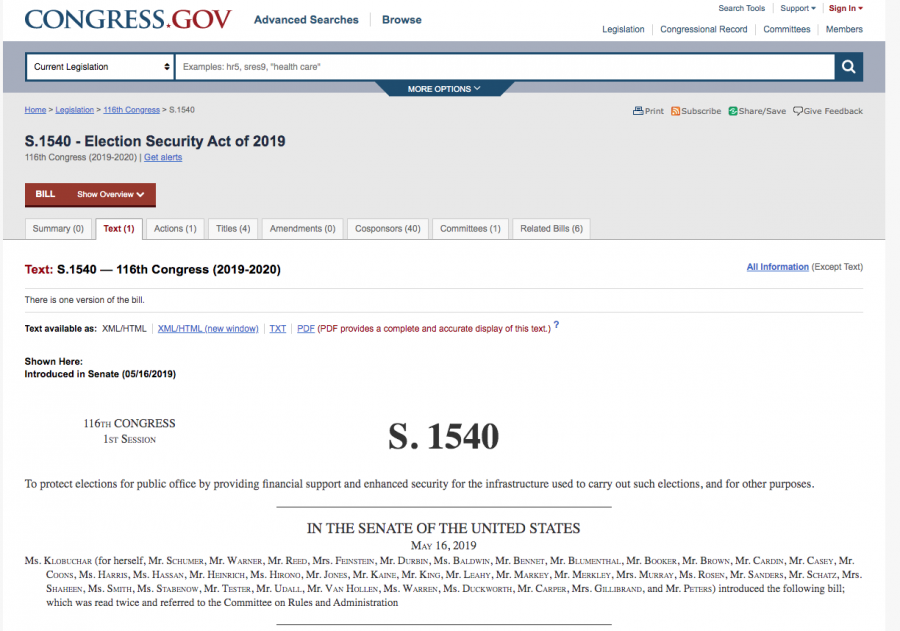WASHINGTON — As the battle over President Donald Trump’s wall at the U.S.-Mexico border continues, Sen. Jim Inhofe (R-Okla.) introduced a bill this week that would make English the national language of the United States.
The English Language Unity Act of 2019, S. 678, would establish English as the national language of the U.S., create an English language rule for naturalization and seek to “avoid misconstructions of the English language text of the laws of the United States.” Sen. Mike Rounds (R-S.D.) is co-sponsoring the legislation.

“Just as there is no country without borders, there is no unity without a common language,” Inhofe said in a statement to Gaylord News. “As I work with President Trump to secure our border and build the wall, I wanted to also take steps to move forward to establishing a national language to promote national unity and greater opportunities for immigrant families.”
Inhofe indicated he was supportive of Trump’s emergency declaration earlier this week, telling reporters he had received assurances money for the border barrier would not be taken from military construction. A resolution to overturn the national emergency declaration passed the House on Feb. 26, 245-182. The Senate is expected to vote on the resolution before its next recess on March 18.
Inhofe has introduced legislation to make English the national language or offered it as an amendment in every Congress going back to 2006, said Leacy Burke, a spokeswoman for the senator. It has previously passed the full Senate as an amendment on larger immigration legislation, Burke said.
Slightly more than 8 percent of people living in the U.S., and four percent of people living in Oklahoma, speak English “less than ‘very well’”, according to data from the U.S. Census Bureau 2017 American Community Survey. That number rises to 48.9 percent of people living in the U.S. when looking only at individuals who are foreign born, and 38 percent of foreign born, naturalized citizens in the U.S. say they speak English “less than ‘very well’” — the numbers for people living in Oklahoma are 51.9 percent and 35.1 percent, respectively.

According to a 2018 Rasmussen Reports poll, 81 percent of Americans think English should be the official language of the U.S., while 70 percent of Americans said speaking English was “very important” to being “truly American” in a 2016 Pew Research Center survey.
Andrea Senteno, regional counsel for the Mexican American Legal Defense and Education Fund, said legislation like this is based on a “false premise” that there is a threat to the English language in the United States. Legislation should focus instead on providing resources to communities to help people learn English, Senteno said.
“I think it’s also important to remember that for many Latinos there is still a belief that learning English is essential and that Latino immigrants are learning English at a faster rate than previous generations of immigrants,” Senteno said. “That’s really important when we’re talking about this type of legislation to really understand who are the populations that are being targeted by having these kinds of bills and the real facts about those populations.”
The same bill has been introduced in the House of Representatives as H.R. 997 by Rep. Steve King (R-Iowa). The House bill has been co-sponsored by nine representatives.
ProEnglish, an English language advocacy organization located in Washington, D.C., has expressed support for Inhofe’s bill.
“This common-sense bill will promote unity and assimilation, save billions of dollars a year for the American taxpayer and reinforce the President Theodore Roosevelt quote, ‘We have but one flag; we must also learn one language, and that language is English,’” said Dan Carter, director of government relations for ProEnglish, in a statement.

